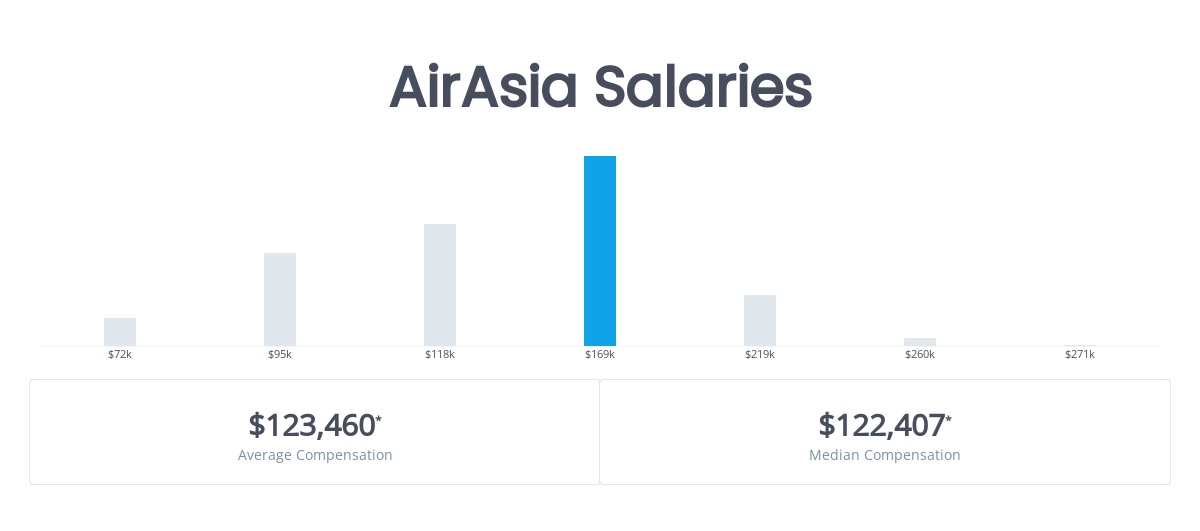The salary of a Chief Executive Officer (CEO) is often a reflection of the responsibilities, company performance, and industry standards. In the case of AirAsia, a prominent budget airline in the Asia-Pacific region, the CEO’s salary is a topic of significant interest. Whether driven by curiosity about executive pay or a desire to compare compensation structures across industries, learning about Air Asia CEO salary provides insights into the world of corporate leadership and aviation.
In this article, we will explore various aspects of the Air Asia CEO salary, including the components that make up the compensation package, how it compares to other CEOs in the industry, and the factors that influence this pay. Understanding these details sheds light on the responsibilities of managing a major airline and the rewards that come with such a position.
Table of Contents
The Structure of a CEO’s Salary
A CEO’s salary isn’t just about the base salary. Like many top executives, the CEO of AirAsia likely receives a comprehensive compensation package that includes:
- Base Salary: The fixed yearly income that the CEO receives regardless of the company’s performance.
- Bonuses: These are typically performance-based and can significantly boost the CEO’s earnings depending on how well the airline performs in a fiscal year.
- Stock Options: CEOs often receive stock options as part of their compensation, giving them the right to purchase company stock at a set price, which can lead to substantial profits if the stock’s value increases.
- Benefits: This includes health insurance, retirement plans, housing, travel allowances, and other perks that come with the executive position.
- Incentives: Long-term incentives that align the CEO’s goals with the company’s future success, often tied to the airline’s financial growth, share value, or strategic achievements.
Together, these elements create a package that reflects not just the work of the CEO but also the success of AirAsia as a whole. The more successful the airline, the higher the CEO’s total compensation can become, especially when it comes to bonuses and stock options.
AirAsia CEO: The Role and Responsibilities
The CEO of AirAsia carries immense responsibility. Running one of Asia’s most recognized budget airlines involves oversight of multiple departments, strategic planning, and ensuring regulatory compliance. Some of the key responsibilities include:
- Strategic Decision-Making: The CEO decides on critical business strategies, such as expanding routes, purchasing new aircraft, and adopting new technologies.
- Financial Management: Ensuring the company’s financial health, optimizing operations to remain profitable, and managing costs, especially in an industry as competitive as aviation.
- Maintaining Operational Excellence: The CEO oversees flight safety, on-time performance, customer service, and operational efficiency across the airline.
- Stakeholder Management: This includes dealing with shareholders, investors, employees, government authorities, and passengers.
Given the complexity and importance of these tasks, the Air Asia CEO salary reflects the enormous responsibility placed on the executive to drive the company’s success.
Breakdown of the Air Asia CEO Salary
The exact salary of the AirAsia CEO varies depending on several factors, such as the company’s financial performance, market conditions, and the specific terms of the CEO’s contract. However, using data from public filings and industry reports, we can estimate the different components of the CEO’s earnings. While the actual figures are subject to change, here’s a rough breakdown:
- Base Salary: In recent years, AirAsia’s CEO has earned a base salary in the range of $1 million to $2 million annually.
- Bonuses: Bonuses can add a significant amount to this base salary. Depending on performance, the CEO could earn $500,000 to $3 million in bonuses in a strong financial year.
- Stock Options and Incentives: Stock options are a significant part of the total compensation package. Depending on the airline’s stock value, the CEO’s earnings through stock options can add millions more to the annual pay, with estimates ranging from $2 million to $5 million or more in exceptional years.
It’s essential to note that the CEO’s compensation is not just about salary; it also reflects the long-term value tied to AirAsia’s stock performance, creating an alignment of the CEO’s financial interests with those of the shareholders.
Comparisons with Other Airline CEOs
Air Asia CEO salary is competitive within the airline industry. To provide a clearer perspective, let’s compare it with the salaries of CEOs from other major airlines:
- Delta Airlines CEO: The CEO of Delta Airlines earns an estimated total compensation package of $13 million to $15 million annually, which includes base salary, bonuses, and stock options.
- Southwest Airlines CEO: With an estimated total compensation of around $10 million, the CEO of Southwest Airlines receives a package similar to that of other leading budget airlines.
- Ryanair CEO: The CEO of Ryanair, another major budget carrier, earns approximately $8 million to $12 million per year, depending on company performance and stock options.
In comparison, Air Asia CEO salary aligns well with other leaders in the low-cost airline sector. This demonstrates the competitive nature of executive compensation in the airline industry, where financial performance and growth prospects are closely linked to the CEO’s earnings.
Factors Influencing Air Asia CEO Salary
Several factors influence the salary of the AirAsia CEO. Understanding these factors helps explain fluctuations in the CEO’s compensation from year to year.
1. Company Performance
The airline industry is highly sensitive to market conditions, and AirAsia’s financial performance directly affects the CEO’s compensation. When the airline achieves strong financial results, expands operations, or enhances profitability, the CEO’s bonus and stock options increase significantly. Conversely, during challenging periods, such as a global recession or the impact of the COVID-19 pandemic, the CEO may experience a reduction in bonuses or stock value.
2. Industry Trends
The airline industry is subject to various trends, such as rising fuel costs, changing regulations, and evolving customer preferences. AirAsia’s CEO must navigate these trends while keeping the airline profitable and competitive. Industry challenges, such as rising fuel prices, can limit bonuses, while innovations in travel technology and improved services can boost performance and, in turn, compensation.
3. Market Competition
As one of the leading low-cost airlines in the Asia-Pacific region, AirAsia faces stiff competition from other budget carriers. The CEO’s ability to maintain market share and differentiate AirAsia’s services affects the company’s growth and profitability, which in turn impacts compensation. Bonuses and stock incentives often hinge on the airline outperforming its competitors in key markets.
4. Economic Environment
A global economic downturn, geopolitical issues, or a health crisis like the COVID-19 pandemic can greatly affect the airline industry. During such times, the CEO of AirAsia must manage operational costs, adjust routes, and implement cost-saving measures to keep the company afloat. These efforts, if successful, can lead to higher bonuses or stock rewards in subsequent years.
Key Milestones in AirAsia’s CEO Compensation
Over the years, the AirAsia CEO salary has evolved in response to the company’s growth and global expansion. Some significant milestones include:
- Expansion into New Markets: With AirAsia expanding its routes to new regions and countries, the CEO’s compensation increased due to the additional responsibilities and the company’s overall success.
- Stock Market Success: During periods when AirAsia’s stock performed well, the CEO benefited from substantial stock option rewards, often adding millions to the total compensation.
- Post-COVID Recovery: The post-COVID recovery period has been crucial for AirAsia, with the CEO playing a vital role in navigating the challenges posed by the pandemic. In years of successful recovery, the CEO’s compensation likely saw a boost due to bonus payouts tied to performance recovery.
Conclusion
The Air Asia CEO salary is a reflection of the responsibilities, performance, and complexities of leading one of Asia’s most recognized budget airlines. With a compensation package that includes a base salary, bonuses, stock options, and other incentives, the CEO is rewarded for the company’s success and long-term growth.
Comparing the AirAsia CEO’s compensation with other airline CEOs shows that the package is competitive, particularly in the budget airline sector. Factors such as company performance, industry trends, and market competition significantly influence the CEO’s pay, making it a dynamic and ever-changing figure.
In summary, the role of AirAsia’s CEO comes with significant financial rewards but also immense responsibility in guiding the airline through both favorable and challenging times. As the airline continues to expand and adapt to the ever-changing aviation landscape, the CEO’s compensation will remain closely tied to the company’s success.
Also read Hiidude | Watch Movies and Webseries Online For Free









